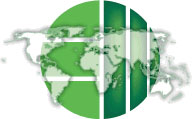 Emmanuel International
Emmanuel International
The core value of Emmanuel International is stated in the name: Emmanuel = God with us, to share God’s message of love through Jesus’ gift of salvation, by walking alongside those in need through practical assistance of relief and development. By taking a grassroots approach directly with church and community, sustainable interventions with environmentally sound methodologies can be promoted.
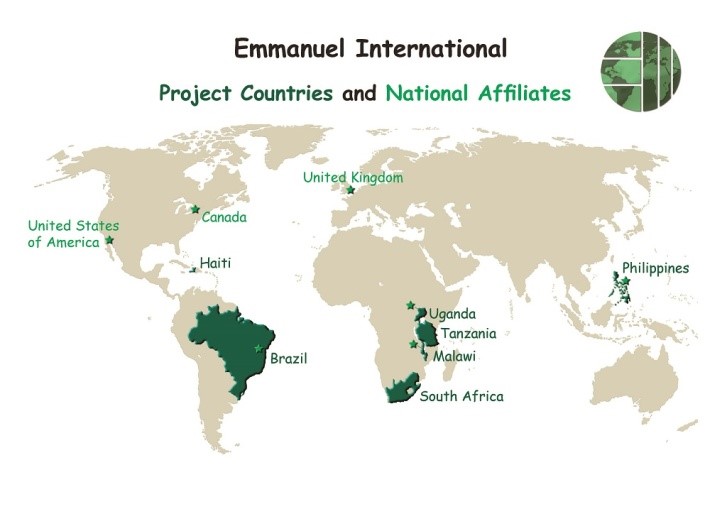
EI meets the needs of people regardless of their race, gender, colour or religion & works under the authority of local churches to serve people. The projects address the needs identified by the local church, in collaboration with the communities they serve.
Emmanuel International has 10 offices around the world. In each country, these offices are designated as either an affiliate or a project office of the organisation. Affiliate countries are those in which there is an EI office that is registered as an NGO within that country, has a board and a constitution, and is able to source funds locally. An Affiliate office is self-governing within the vision, mandate and ethos of EI. 7 of our 10 countries are now considered affiliate countries. Tanzania, Haiti and South Africa are not affiliates EI in Canada, the United States of America and the United Kingdom, as well as the International Office, are only affiliate offices and work closely together to coordinate communication, funding, support of projects, etc.
EI meets the needs of people regardless of their race, gender, colour or religion & works under the authority of local churches to serve people. The projects address the needs identified by the local church, in collaboration with the communities they serve.
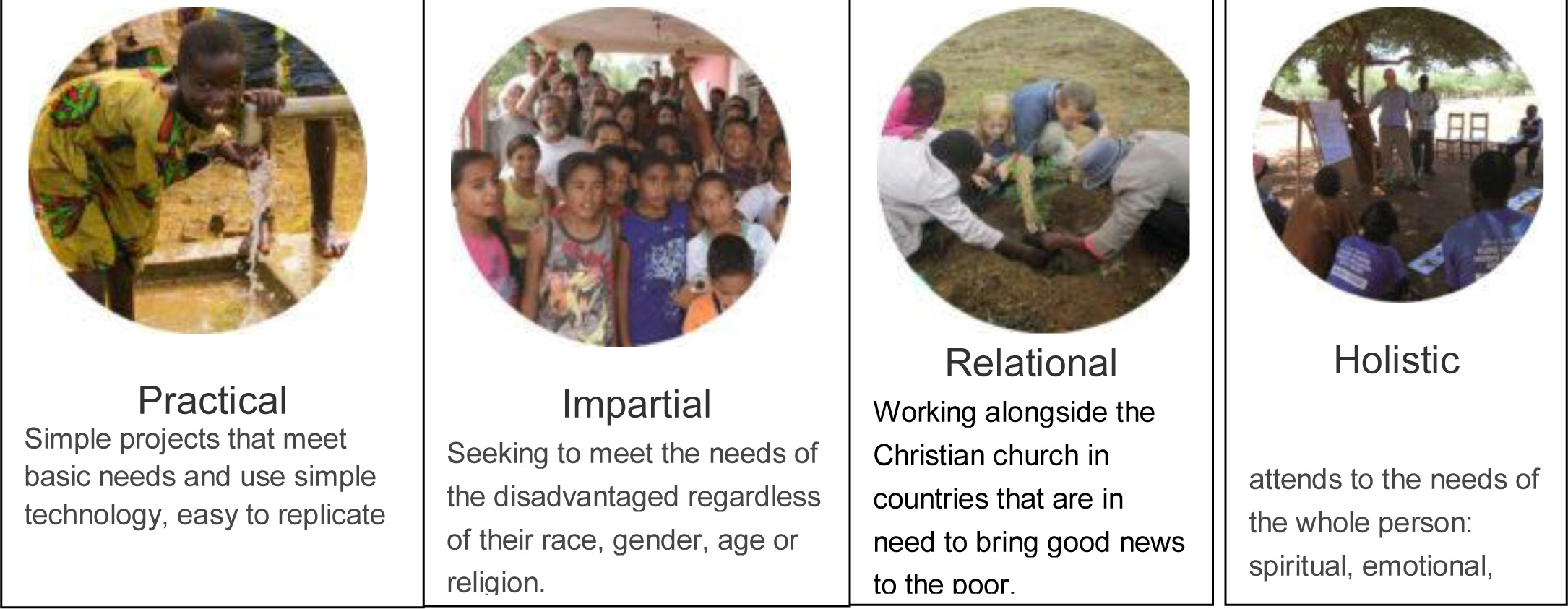
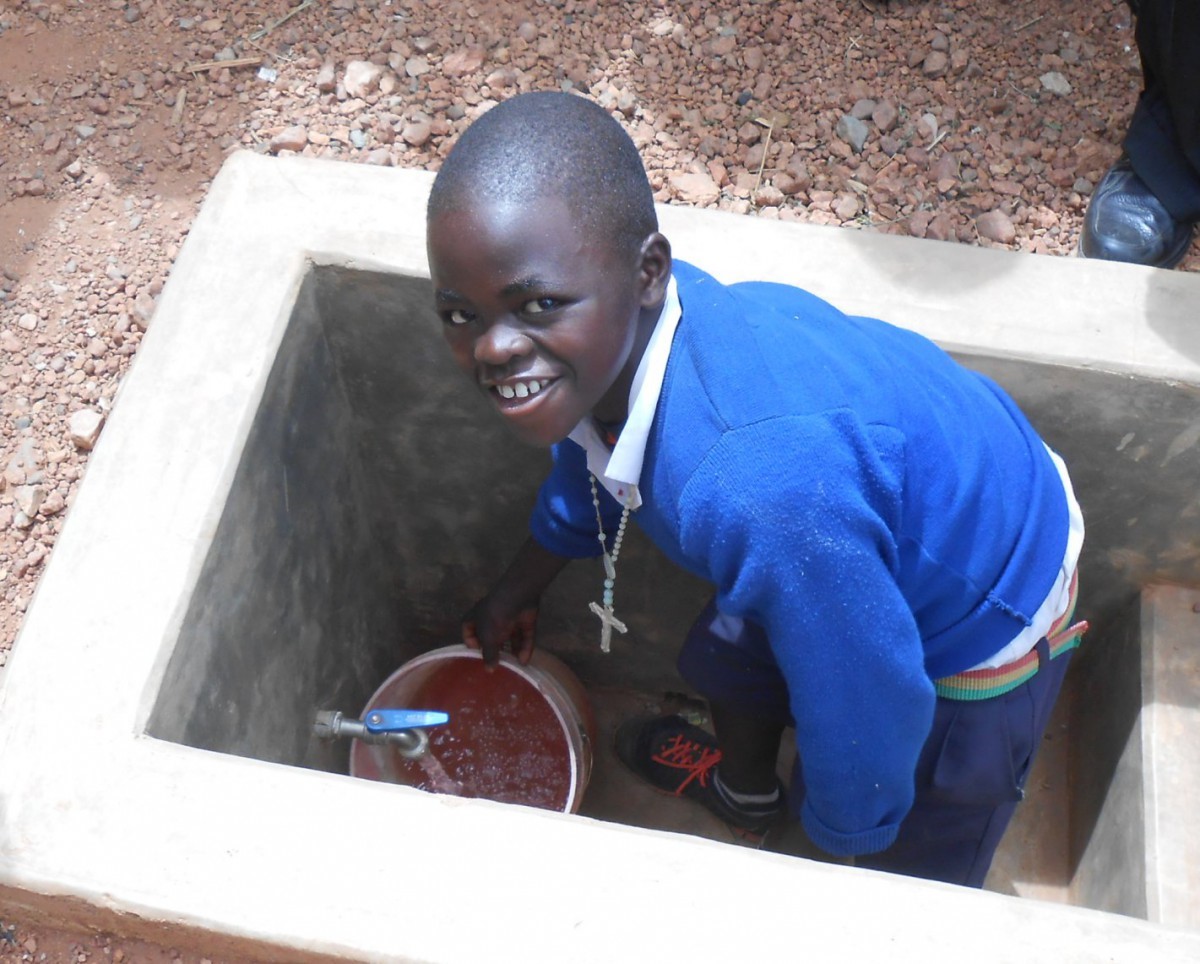
Tanzania:
The Ibumu Water Project will improve health and livelihoods of villagers in Ibumu through provision of adequate clean water throughout the village, together with health and hygiene education and improved sanitation facilities at the primary and secondary schools (WASH). A by-product will be a reduction in poverty as less time is lost due to illness and water collecting, freeing up time (particularly for women and girls who bear the brunt of water collection duties) for other tasks. The whole village population of 2499 will benefit from this project.
Disaster relief projects
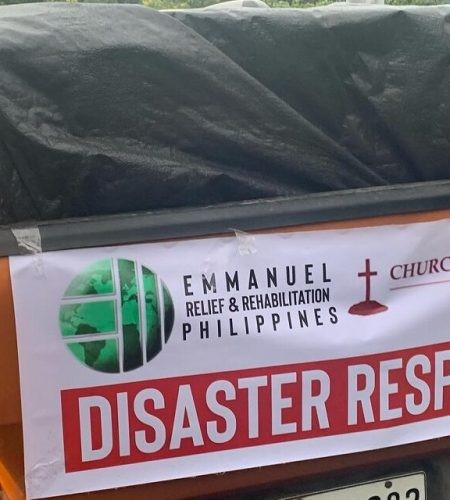
Philippines
On December 16, 2021, Typhoon Odette (Rai) hit the Philippines and has devastated many provinces in the Philippines (Luzon, Visayas, and Mindanao) with a strength of around 200 kms/hour and gustiness of up to 270 Kms/hr, and making landfalls nine times. More than 300 people have died, around 600 injured and around 50 are still missing (Dec 2021). It has destroyed 85-90% of the houses that were in its path. Millions of People were devastated, without food, water, shelter, electricity, and ways of communication. To help ease the pain of our suffering
people, Emmanuel International will be distributing relief goods to 5,000 families and helping 1,000 families rebuild their houses. They have distributed rice, water, canned goods, instant noodles and flashlights, and distribution is still going on as financial help arrives. They also started giving out G.I. sheets (roofing materials) and plywood for the repair of the houses affected.
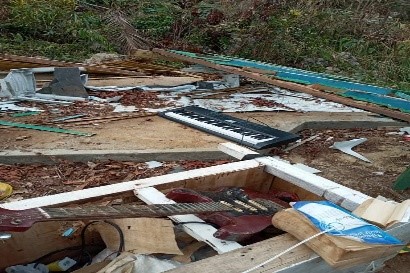
Cyclone Ana swept through Southern Malawi damaging hectares of crops, washing away livestock and damaging infrastructures such as roads, bridges and homes. EI Malawi is working in some of the areas affected. An impact assessment has reported 48,216 households (approximately 216,975 people) have been affected, 107 people sustaining injuries and 10 deaths. The total number is expected to rise as they complete the assessment. In some areas, families had not recovered from Cyclone Idai which washed through March of 2019.
Although Cyclone Ana has weakened and has passed through Malawi, rains are still expected to continue which is likely to cause more flooding.
Assistance is needed to support the initial needs of families that have been displaced with items such as: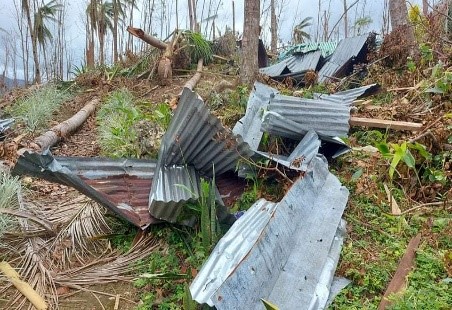 • Food items
• Food items
• Additional of tents
• Blankets
• Nets
• Buckets
• Plates
• Cups
• Soap
• Torches
Development Projects
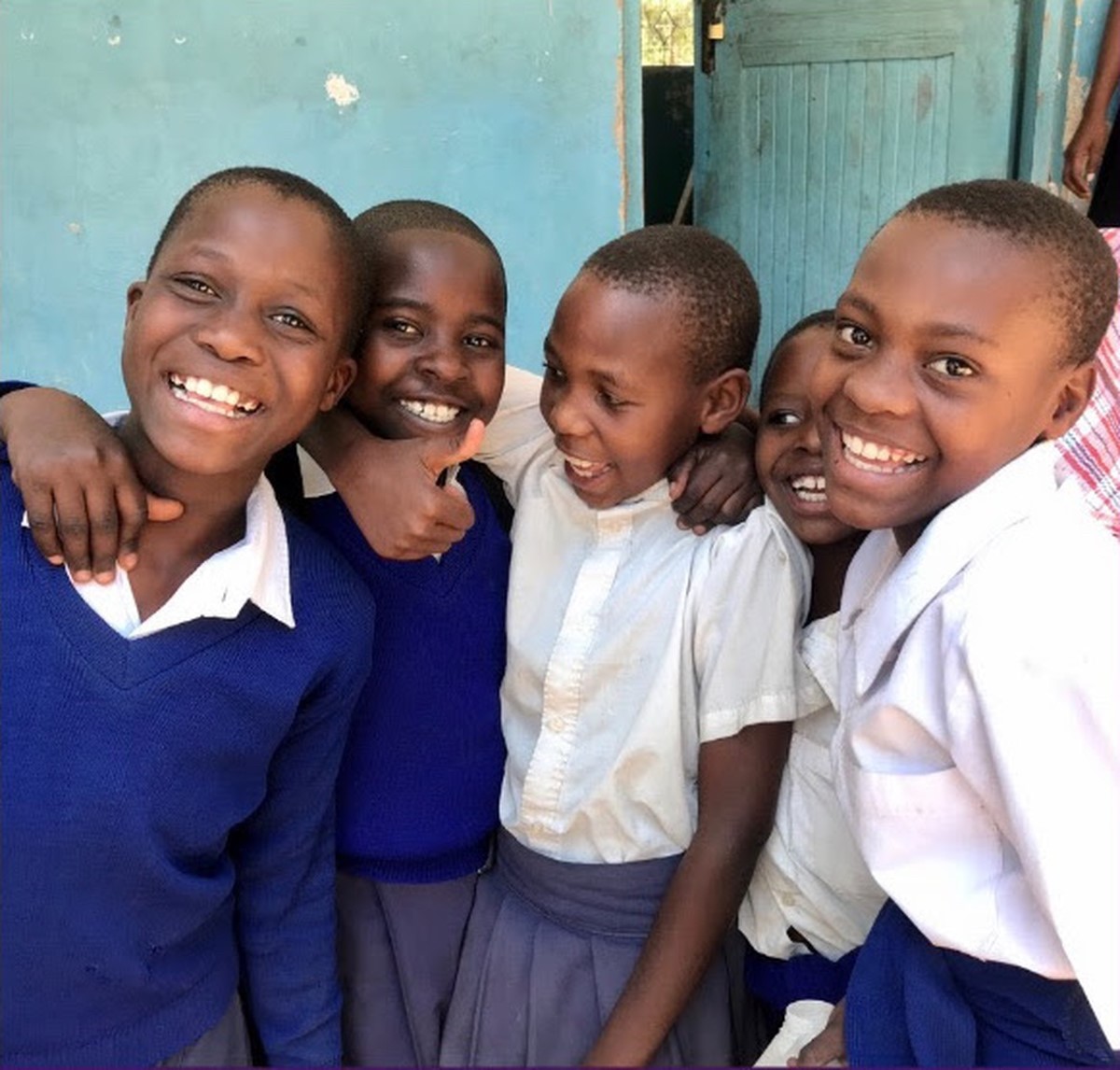 Tanzania:
Tanzania:
In November 2019, we launched the “Nguvu na Hadhi” girls health project (translated “Strength & Dignity”) because research shows there’s a significant gap in countries across sub-Saharan Africa when it comes to the topic of menstruation. The importance of addressing this gap cannot be stressed enough: girls need to become empowered to take care of their changing bodies.
Did you know that 1 in 10 African girls skip school 4 to 5 days per month or drop out completely because of menstruation?! That’s the equivalent of 2 weeks of learning lost every school term. With studies showing that every year of school increases a girl’s future earning power by 10-20% and can reduce the risk of HIV and delay teenage pregnancy, keeping girls in school is a must.
Emmanuel International Tanzania has been responding to this need by delivering holistic training. These sessions provide physiological, social, and spiritual guidance around the taboo topics of puberty and menstruation. These newly empowered girls are now equipped to deal with their changing bodies, but unsafe water, lack of sanitation, and poor hygiene are making it impossible for girls to stay in school.
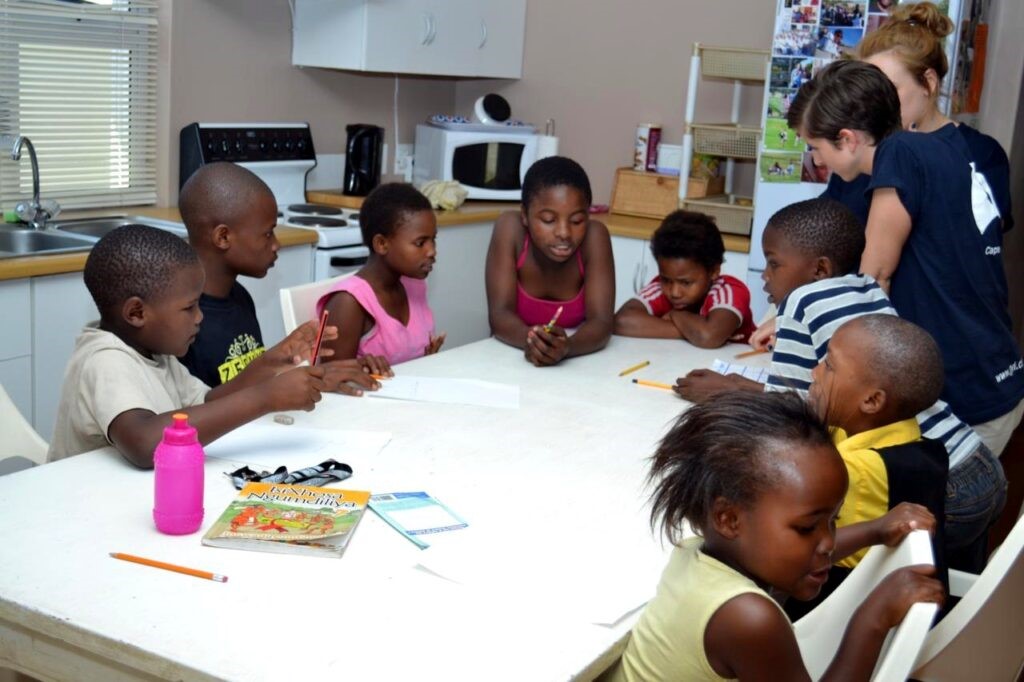 South Africa:
South Africa:
The Safe House ministry was formed by Emmanuel International South Africa (EI SA) in 2009 and is located in the informal township of Masiphumelele, south of Cape Town. EI SA’s partner in keeping orphans and vulnerable children safe is African Hope Trust.
After working in HIV care and prevention for 6 years prior, Don Sayers (EI Country Representative) was all too familiar with the plight of children that were left behind in the wake of the HIV pandemic – the desperately high number of abandoned and abused children left to fend for themselves and the increase in drug and alcohol abuse in the impoverished townships.
The concept of foster parent-led homes in the informal settlements of South Africa as a practical and sustainable way to provide a family for the children who did not have that hope was formed. These Safe Houses are partnered with local churches to improve the spiritual support of the mums and children, as well as logistical support in counselling, transport, tutoring and discipleship.
The goal of the Safe House ministry is to build homes, not just of safety, but genuine places of familial nurturing for children who have been abandoned, abused or orphaned. The children have the opportunity to be raised in a Godly home environment where permanent foster mothers or parents, from the same culture, raise them as their own (but legally as a foster parent).
Each home is led by a full-time and devoted house mother who raises and cares for 6 children in each home, 24 hours a day, every day. This size allows for a genuine sense of ‘family’ for the children who are referred to the safe homes and enables the house mother to spend quality time with the children rather than simply feeding and sheltering them. It is a place of love and discipleship. The small scale has very real benefits as compared to larger institutional sized orphanages where the children often come out ‘institutionalised’.
The mothers view their work with the children as a calling rather than a ‘job’. It is through this devotion that we are able to create a genuine home environment where the children begin to view the foster-mum as ‘mum’ and the other children as siblings.
The children remain in the house indefinitely or until extended family members can be found. However, even when extended family is found, they are often not willing or able to care for the child that has been left behind or removed from an abusive home environment.
Some other Development Projects
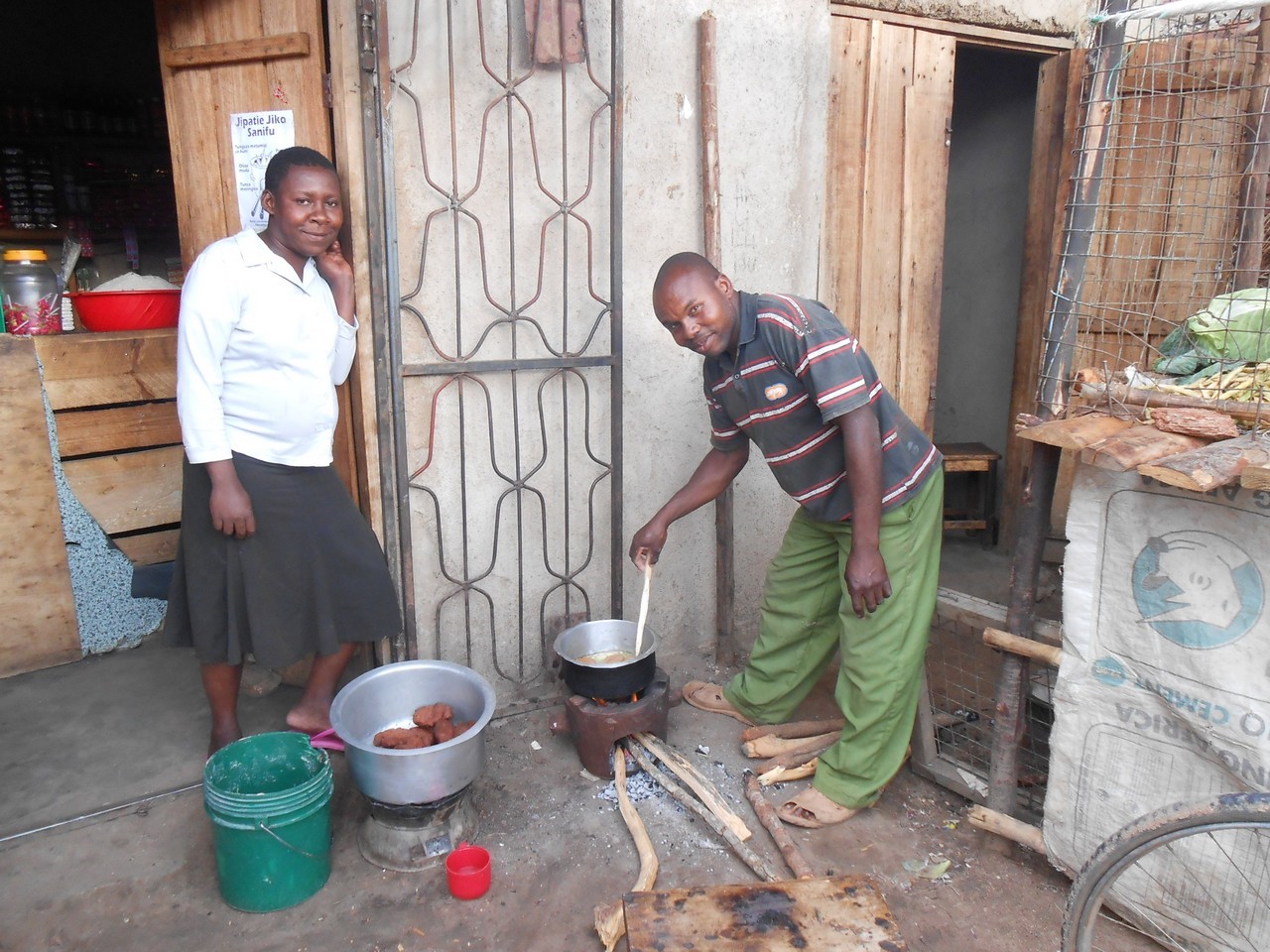
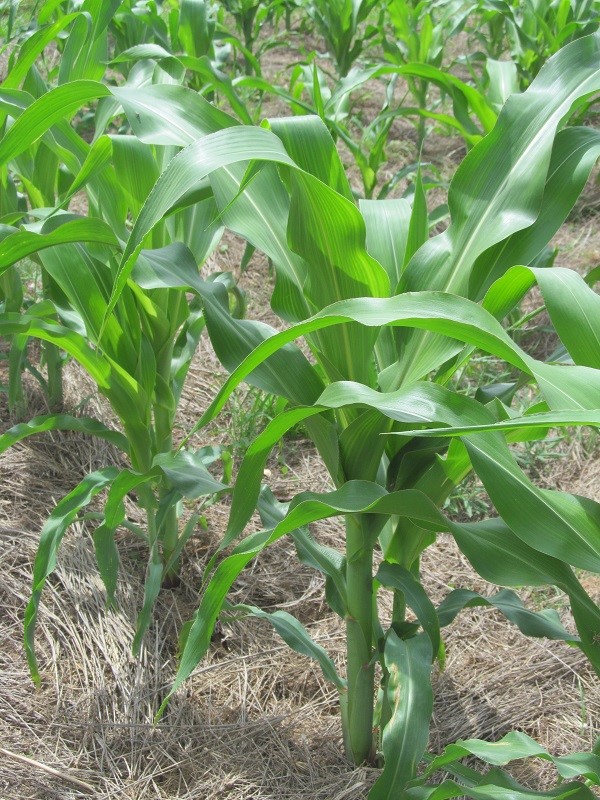
Tanzania Fuel Efficient Stoves Conservation Agriculture
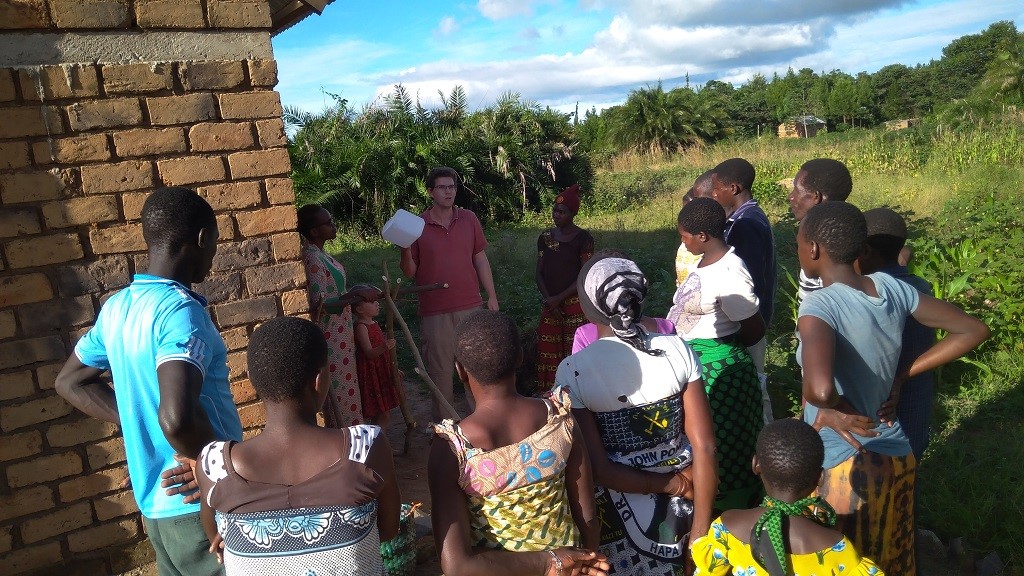
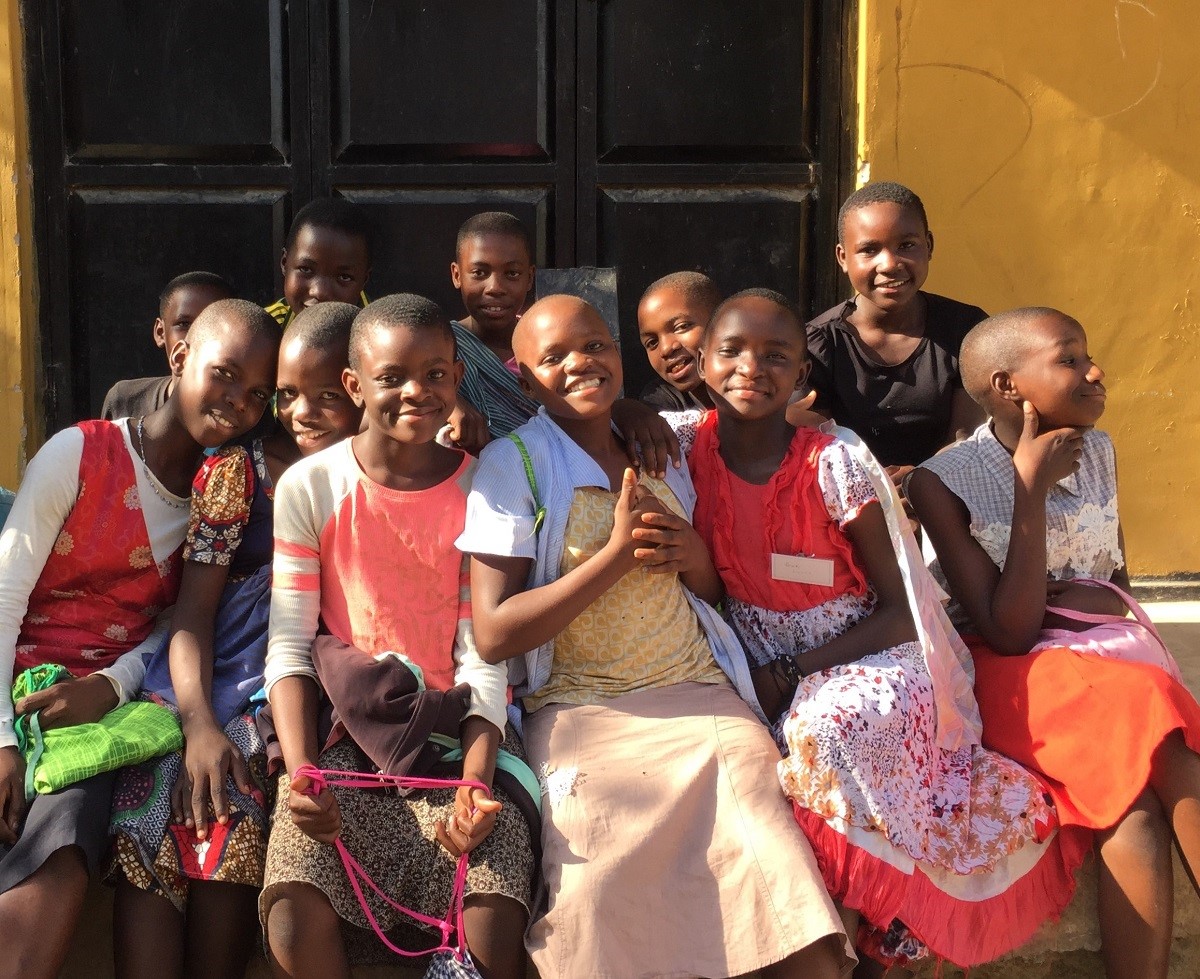
Kome Island Health Project Girls Health
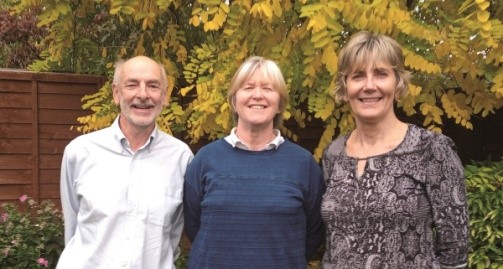 EIUK staff
EIUK staff
Sue Fallon (middle) is General Manager of the EIUK office.
Sue initially worked at the Headquarters in Stouffville, Ontario just outside Toronto. She co-ordinated Training School and was the Finance Administration Assistant at Head Office. She was also Youth Pastor to 4 local churches.
In 2005 Sue felt God calling her to return to England to join the UK Team in Chichester. She took up the post of Operations Co-ordinator and was appointed General Manager in 2006.
Linda Fitzmaurice (right) is Personal Assistant to the General Manager.
She is originally from South Africa and has settled in the UK with her husband and son. She started working with EI in 2006.
Andy Sharpe (left) is Fundraising Support.
Having worked with EI in Tanzania, together with his wife Angela, from 2010 till 2015, he is now helping the EI UK office with funding applications and promotions.
Find out more about this & other projects on www.eiuk.org.uk
Sue Fallon from EIUK speaking at the services on 20th February (click to see the talk)
CC Link Lucy Harding